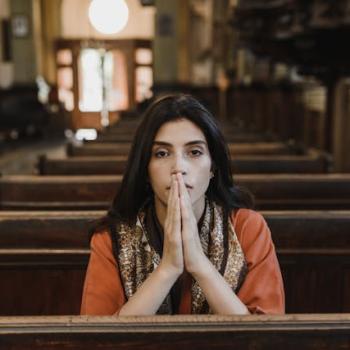A top Vatican panel assisting Pope Francis went further than the Church has gone before in affirming non-traditional relationships, saying Monday that the Church must “turn respectfully” to couples such as those who live together unmarried or are of the same-gender and “appreciate the positive values” those unions may have.
The comments blew away some longtime Vatican experts because they put the Catholic Church – the world’s largest – squarely in the middle of the mainstream public discussion about sexuality and marriage, rather than in one corner focused mostly on unchanging doctrine. What changes to doctrine or practice might follow from the suggestions, if any, weren’t at all clear.
The comments came in a document a small handful of clergy — including DC’s Archbishop Donald Wuerl — prepared to summarize what has happened during the first half of a two-week long “synod” Francis called in order to confront the Church’s most contentious issues. The document was the first real information the Vatican has released on what’s gone on in the rare high-level meeting of 190 top clergy, who are launching a deeper look at church teaching and practice around family issues. It’s meant to guide further talks for this week and in coming months.
The document reaffirmed that traditional teachings are the “ideal” but was remarkable to some in its openness and lack of emphasis on condemnation of untraditional relationships.
The Rev. James Martin, a Catholic writer with the Jesuit magazine America, wrote that the document was “stunning.”
“The Synod said that gay people have ‘gifts and talents to offer the Christian community.’ This is something that even a few years ago would have been unthinkable, from even the most open-minded of prelates–that is, a statement of outright praise for the contribution of gays and lesbians, with no caveat and no reflexive mention of sin,” Martin wrote. “That any church document would praise same-sex ‘partners’ in any way (and even use the word ‘partners’) is astonishing.”
On that, the document said “Without denying the moral problems connected to homosexual unions it has to be noted that there are cases in which mutual aid to the point of sacrifice constitutes a precious support in the life of the partners.”
Patrick Hornbeck, chair of the theology department at Fordham, a Catholic university, said the document’s power was in its perspective.
“Some questions were asked here that have never been asked publicly by bishops: What good can we find in same-sex unions? In many ways for the first time in a long time the Catholic Church is saying it wants to ask really hard questions about how people truly live their lives,” he said.
[Keep reading. . . .]
What do you make of this? I’ve heard Protestants looking to the Catholic church for upholding traditional values. But are they? Is this approach–recognizing the good things that non-married and/or homosexual couples do for each other–a helpful way of dealing with the challenges to traditional marriage? Is there anything distinctly Catholic about this way of reasoning, or can other theological traditions go along with this?












